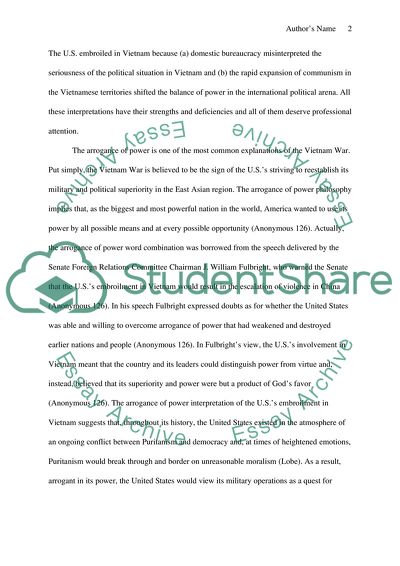Cite this document
(Why Did the US Become Embroiled in Vietnam Essay Example | Topics and Well Written Essays - 2250 words, n.d.)
Why Did the US Become Embroiled in Vietnam Essay Example | Topics and Well Written Essays - 2250 words. https://studentshare.org/military/1766152-discuss-and-critically-asses-and-evaluate-the-different-interpretations-as-to-why-the-us-became-embroiled-in-vietnam
Why Did the US Become Embroiled in Vietnam Essay Example | Topics and Well Written Essays - 2250 words. https://studentshare.org/military/1766152-discuss-and-critically-asses-and-evaluate-the-different-interpretations-as-to-why-the-us-became-embroiled-in-vietnam
(Why Did the US Become Embroiled in Vietnam Essay Example | Topics and Well Written Essays - 2250 Words)
Why Did the US Become Embroiled in Vietnam Essay Example | Topics and Well Written Essays - 2250 Words. https://studentshare.org/military/1766152-discuss-and-critically-asses-and-evaluate-the-different-interpretations-as-to-why-the-us-became-embroiled-in-vietnam.
Why Did the US Become Embroiled in Vietnam Essay Example | Topics and Well Written Essays - 2250 Words. https://studentshare.org/military/1766152-discuss-and-critically-asses-and-evaluate-the-different-interpretations-as-to-why-the-us-became-embroiled-in-vietnam.
“Why Did the US Become Embroiled in Vietnam Essay Example | Topics and Well Written Essays - 2250 Words”. https://studentshare.org/military/1766152-discuss-and-critically-asses-and-evaluate-the-different-interpretations-as-to-why-the-us-became-embroiled-in-vietnam.


